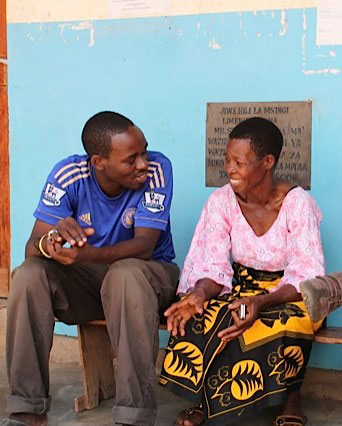Being based in the ‘Silicon Savannah’, also known as Nairobi, I’ve heard entrepreneurs talking about “looking for a problem, not an idea”. After the deluge of M-Pesa wannabes, social entrepreneurs in the tech space are realising that to create a profitable business one needs to begin by understanding the problem, the pain point, the inefficiency that needs a solution. Those who come up with a great idea, and go straight to developing their app, product or service will most likely fail unless they’re solving a painful problem.
In our experience of working with mobile service providers to launch and scale mAgri services, we’ve seen the same problem arise: too little time spent understanding the problems that need solving, and too much time using secondary data to back up an idea. The result is that service uptake and regular usage of mAgri services struggles.
MNOs and VAS [value added services] providers do not typically invest in comprehensive research to understand their target customer’s daily life, their pain points, their needs etc. The more typical mobile VAS approach is to get the product out to market fast, promote it, see if it works and if it doesn’t, scrap it.
Announcing a new partnership with frog
It is for these reasons that we’re very excited to announce a new partnership between the GSMA mAgri Programme and frog, one of the world’s leading product strategy and design firms. For the next two years, frog will team up with GSMA mAgri and programme partners to work closely with 6 mobile network operators and their agriculture partners, to use human-centred design methodology to design mobile services that meet the needs of farmers and the agriculture sector.
frog teams will work in-country with each of the 6 mAgri grantees (will be announced soon) to carry out a number of activities including inception workshops, primary immersive research with target users, prototype design and testing, iteration, regular user testing and service improvements. The frog teams will work collaboratively with MNOs [getting their buy-in is a priority- see our previous blog- Balancing Bottom-up Innovation with a Top-down Mandate] and will mentor User Experience (UX) experts who will be employed by each MNO, and build their capacity as experts and champions within their own organisations.
The underpinning philosophy of frog’s approach ensures that solutions are holistic and viable by rapidly testing and iterating concepts with target users. The approach is about performing activities that seek insight about human behaviour to inspire the design of products, services and experiences.
Why human-centred design for mAgri?
There are two main reasons why we decided to invest in Service Design support for the six mAgri services we’ll be working with under the new mAgri Challenge Fund:
- Designing mobile services targeting smallholder farmers requires a different approach to traditional mobile VAS (value-added services) such as ring-back tones, horoscopes or football scores. When it comes to a target market of farmers who are price sensitive and may well be interacting with a mobile VAS for the first time, the service needs to be carefully designed to be easy to use and to provide more value for money compared to other mobile services including simple voice calls.
- Creating agricultural content for mAgri services is a complex process due to the nature of agriculture (multiple crops or livestock breeds, different farming cycles, changing climate conditions, numerous seed varieties, pests and diseases etc.) and therefore services must be demand-driven and based on users’ needs in order to avoid high set-up costs (spending money developing the wrong service) and to ensure people want to use the products (you reach scale). As any micro-finance institute (MFI) in this space will tell you, designing mobile financial services such as loans or savings products for farmers, is equally complex.
Our aim
Through this exciting partnership with frog, we seek to prove the rational for MNOs to invest in careful, human-centred service design and ongoing improvements driven by user feedback (see our previous blog on this topic). We want to prove that MNOs can get a valuable mAgri service to market, reach scale and reduce operating costs in the long run by investing early in understanding users’ problems and their needs. We aim to show that an initial investment will pay off.
Sounds ambitious? Keep reading our blog to hear how we get on with fulfilling these aims!


